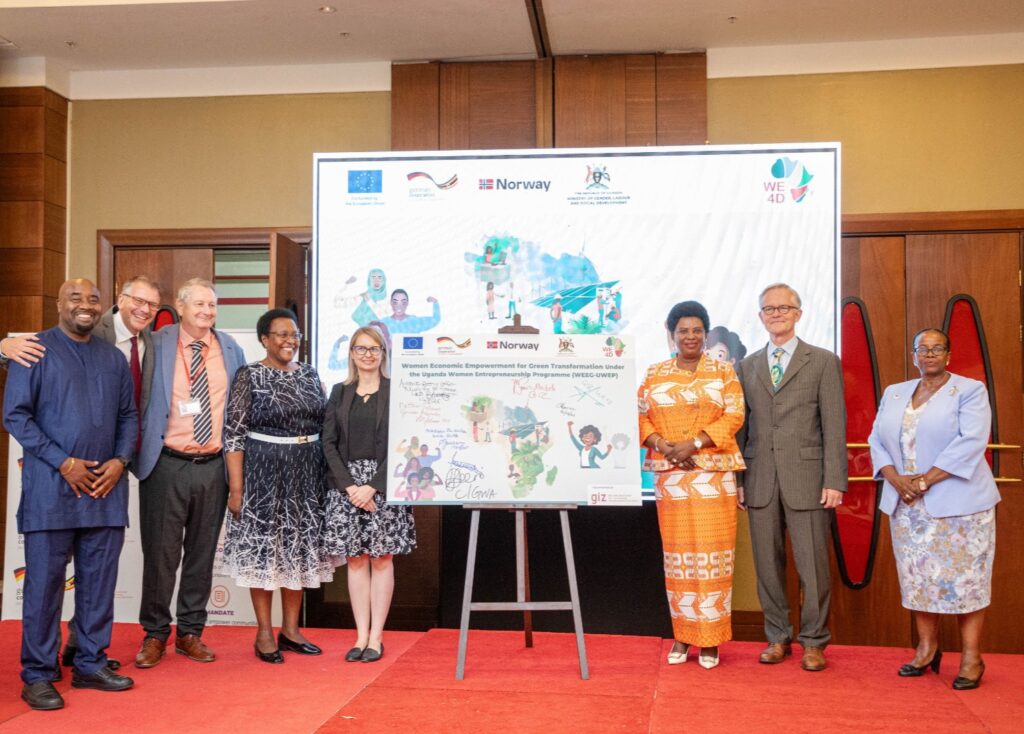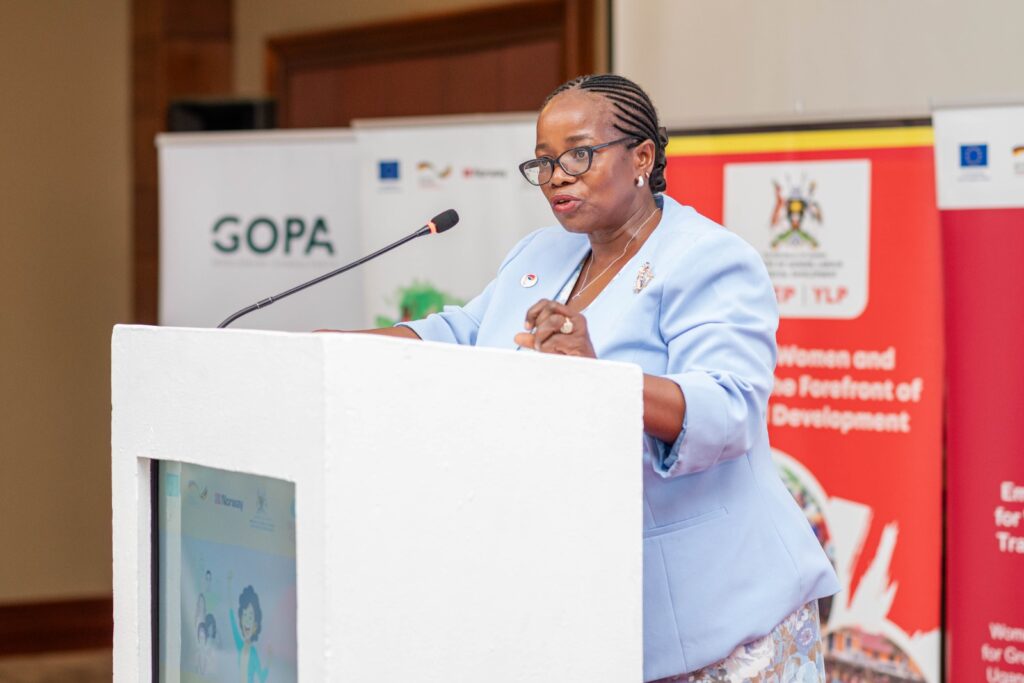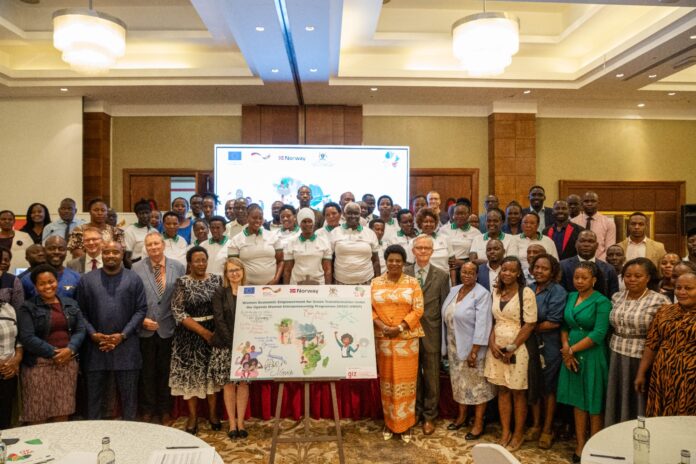The Minister for Gender Betty Amongi Ongom has officially launched the implementation of the Women Economic Empowerment for Green Transformation Project under the Uganda Women Entrepreneurship Programme (WEEG-UWEP).
This milestone marks yet another step in our country’s commitment to advancing women’s economic empowerment while supporting Uganda’s Green Growth Development Strategy (UGGDS) meant to fast-track the implementation of the National Development Plans with focus on “gender” and “green growth.
“We are here today not only to launch a project, but to affirm a vision — a vision where Ugandan women are equipped, empowered, and enabled to lead in sustainable economic growth and environmental stewardship.,” Amongi said.
The minister expressed government appreciation to the German Government, the European Union, and Norway for their generous support towards the commissioning of the project.

“Employment Promotion for Women for the Green Transformation in Africa” (WE4D) initiative, which is being implemented by GIZ, in close collaboration with the Ministry of Gender, Labour and Social Development (MGLSD).Through this strategic partnership, the MGLSD is working closely with GIZ-WE4Dprogram to increase the competitiveness of 600 UWEP-funded women groups operating in green sectors.
The aim is to create employment, raise incomes, and improve gender-specific working conditions — especially for women in rural areas.
Amongin said Uganda’s Vision 2040 places women’s empowerment at the heart of inclusive and sustainable development.
“This is not only a matter of equity; it is a driver of economic growth. Uganda is proud to have one of the highest rates of women’s business ownership in Africa.,” she stressed.
According to the 2020 Mastercard Global Index of Women Entrepreneurs, women own nearly 40% of all businesses in the country. Yet, despite this remarkable achievement, most women-led businesses remain at the micro level, with fewer than five employees and limited turnover.
We know that when women enter traditionally male-dominated sectors, they perform just as well as men. This clearly demonstrates that with the right support — skills, financing, markets, and networks — women-owned enterprises can grow, diversify, and compete effectively.
However, despite implementing various economic empowerment programmes, women entrepreneurs in Uganda continue to face significant constraints.

These include limited access to finance, limited access to markets, inadequate skills development and technology, social norms that foster economic dependence, and limited participation in high-value sectors. We therefore look forward to the contribution of the WEEG-UWEP Project in addressing these barriers.
According to the minister since UWEP inception in 2015/2016, UWEP has reached 22,779 women groups/enterprises with 240,825 direct women beneficiaries across the country as of June 2025. The programme has improved incomes, created self-employment, enhanced business management skills, expanded access to affordable credit, and reduced economic dependency.
“Our current partnership with GIZ-WE4D program— targeting 600 supported women enterprises in greening sectors — will further expand this impact to the other UWEP funded groups and will also inform future selection of the women groups under UWEP,”she emphasized.
She noted that the demand for support continues to exceed available resources adding that this is why sustained partnerships, resource mobilisation, and advocacy remain essential.

The WEEG-UWEP Project comes at a time when Uganda is prioritising interventions in key growth sectors to transition to middle-income status. The green transformation is not just an environmental agenda — it is an economic opportunity.
Through this project, we look forward to providing tailored training, individual business advisory services, coaching and mentorship, business development support activities e.g. formalization and access to market, and improved access to finance to help women’s enterprises grow in size, profitability, and sustainability.
She called upon all stakeholders — government agencies, development partners, the private sector, and community leaders — to work together to create an enabling environment where women can thrive in the green economy.
“Let us remember: when we invest in women, we invest in families, communities, and the nation. Women’s economic empowerment is not charity — it is smart economics,”the minister remarked


